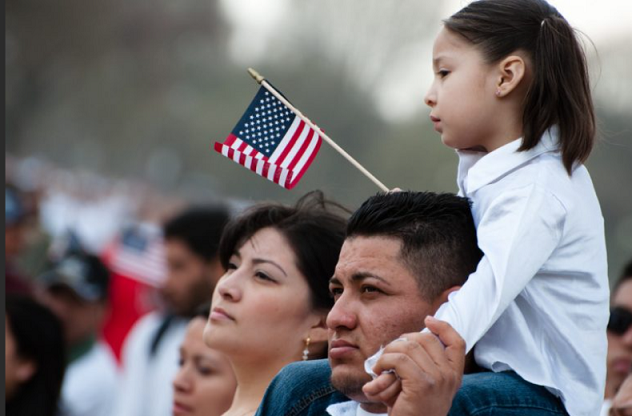Paul Armstrong
Special to CSMS Magazine
Arab American voters are set to play a significant role in determining the outcome of this year’s elections, especially in key battleground states like Michigan. With a rapidly growing and politically active population, Arab Americans are becoming an increasingly important demographic that candidates cannot afford to overlook. Their influence is particularly strong in Michigan, where the Arab American community is one of the largest in the country, concentrated in areas like Dearborn, Hamtramck, and Detroit.
Demographic and Political Landscape
The Arab American population in Michigan is estimated to be around 500,000, making it a substantial voting bloc in a state where elections are often decided by narrow margins. This community is diverse, encompassing people of Lebanese, Yemeni, Iraqi, Palestinian, and other Middle Eastern and North African (MENA) backgrounds. While the Arab American community in Michigan is not monolithic in its political views, there are common issues and concerns that resonate broadly across the population.
Historically, Arab Americans have leaned Democratic, particularly in national elections. However, there has been a growing trend of political diversification within the community, with some members expressing support for Republican candidates, especially those who advocate for conservative social values or have taken strong stances on issues like religious freedom and small business support. This makes the Arab American vote not only significant but also potentially unpredictable, adding another layer of complexity to Michigan’s electoral landscape.
Key Issues for Arab American Voters
Several key issues are likely to drive Arab American voter turnout and influence their decisions at the polls this year:
- Civil Rights and Immigration: Arab Americans, particularly those who are Muslim, have been deeply affected by issues related to civil rights and immigration policies. Concerns about discrimination, racial profiling, and Islamophobia have historically driven the community’s political engagement. Candidates who address these issues, advocate for the protection of civil liberties, and propose inclusive immigration policies are likely to gain significant support from Arab American voters.
- Foreign Policy: U.S. foreign policy in the Middle East is another critical issue for Arab American voters. Many in the community have strong ties to countries like Lebanon, Yemen, Palestine, Iraq, and Syria. How candidates approach issues such as U.S. involvement in the Middle East, relations with Israel, and humanitarian assistance to war-torn regions can significantly influence Arab American voters. A candidate’s stance on these issues can either attract or alienate voters who are deeply invested in the outcomes of U.S. foreign policy decisions.
- Healthcare and Education: Like many voters, Arab Americans are concerned about the accessibility and affordability of healthcare and education. The COVID-19 pandemic highlighted disparities in healthcare access, and many Arab American families are particularly interested in candidates who advocate for comprehensive healthcare reform. Education is also a priority, especially policies that support public schools and make higher education more affordable and accessible.
- Economic Opportunities: Economic recovery post-pandemic is a major concern, particularly for small business owners, many of whom are Arab American. Candidates who propose policies that support small businesses, reduce taxes, and create jobs in Michigan’s struggling economy may find a receptive audience among Arab American voters.
Political Engagement and Mobilization
Over the years, Arab Americans in Michigan have become increasingly politically engaged, with higher voter registration and turnout rates. Community organizations, local leaders, and national groups like the Arab American Institute (AAI) have been instrumental in this mobilization, providing resources, education, and outreach efforts tailored to the unique needs and concerns of the Arab American community.
Candidates in this year’s elections are keenly aware of the importance of the Arab American vote. As a result, there has been a noticeable increase in targeted campaign efforts, including Arabic-language campaign materials, town hall meetings in Arab American neighborhoods, and direct engagement with Arab American leaders. These efforts reflect the growing recognition that the Arab American community in Michigan could be the deciding factor in closely contested races.
Finally, in a state where elections can be decided by razor-thin margins, the Arab American vote is more crucial than ever. This year, Arab American voters in Michigan are poised to play a pivotal role in determining the outcome of key races, from local elections to the presidential contest. As their political influence continues to grow, candidates will need to engage with this community thoughtfully and meaningfully if they hope to secure their support and, ultimately, win their votes. The Arab American electorate’s impact on Michigan’s elections this year could very well be the tipping point in determining the state’s political future.
Note: Paul Armstrong is a writer based in Detroit, Michigan. He wrote this piece exclusively for CSMS Magazine.


